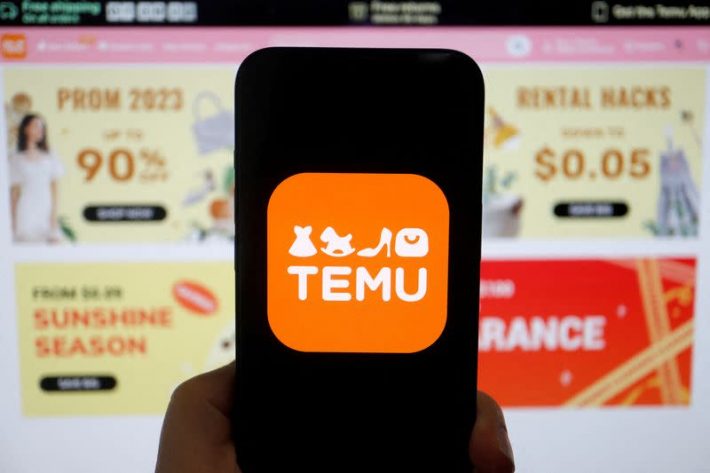One by one the US is cutting, or restricting, its business ties with China. And the Chinese economic juggernaut continues to wither.
The latest blow came on Friday, when the Biden administration announced that it will move to curb the flood of cheap Chinese goods pouring into America under a rule known as the ‘de minimis’ threshold.
The ‘de minimis’ rule, which allows items under $800 to enter the US duty-free, has been exploited by Chinese e-commerce firms such as Shein and PDD Holdings’ Temu.
ALSO SEE: US House Passes Bill to Limit China’s Access to EV Tax Credits
Billions of dollars worth of cheap fashion products and all manner of other items look set to be affected.
White House officials said they will propose the new trade rules to deny the duty-free exemption to packages that contain low-value goods subject to the Section 301 tariffs on Chinese goods, the Section 232 tariffs on steel and aluminium products and Section 201 on “safeguard” tariffs on products including solar products and washing machines.
The proposed rules also include new information disclosure requirements for small parcels to help US Customs and Border Protection agents to better identify contents for illicit or unsafe products, such as precursor chemicals that can be made into the deadly opioid fentanyl.
Call for ‘loophole’ to be closed
The White House announcement comes two days after Democratic lawmakers in Congress urged President Joe Biden to use executive powers to close the de minimis provision, which they called a “loophole” that has allowed Chinese imports to evade tariffs and ship narcotics to the US without customs inspection.
The small-package exemption has been part of US trade law since 1930 to accommodate individual travellers, but the threshold was increased to $800 from $200 in 2015 as an aid to small businesses, including sellers on e-commerce platforms such as eBay.
Packages under the limit enter duty-free and with less customs scrutiny, as long as they are addressed to individuals’ residences.
Since then, the volume of packages entering the US under the $800 threshold has exploded to over 1 billion last year from around 140 million a decade ago, White House officials said, attributing most of the growth to Chinese e-commerce firms.
Among the biggest beneficiaries have been Shein and Temu, which ship direct to US consumers from China. But US textile manufacturers blame the exemption for allowing low-value clothing packages to skirt US Section 301 tariffs, which cover some 70% of large-scale Chinese textile and apparel imports.
“The drastic increase in de minimis shipments has made it increasingly difficult to target and block illegal or unsafe shipments coming into the US through this pathway,” White House Deputy National Security Adviser Daleep Singh told reporters.
“That’s why the administration is starting a regulatory process to curtail de minimis overuse and abuse.”
The goal of the new rules is to reduce the volume of de minimis shipments to a more manageable level to better screen packages, a senior administration official said. Another proposed rule would require de minimis packages to contain product tariff codes and other information to help better identify suspect shipments.
It was unclear how quickly the proposed rules could be implemented. They would require public comment periods to allow interested parties to weigh in before they are finalized. Administration officials also said they are working with lawmakers to pass reforms to the trade provision for blanket exclusions of certain import-sensitive products.
The action was announced on the same day that the Biden administration locked in steep US tariff increases on some $18 billion worth of Chinese imports, including 100% duties on electric vehicles, 50% on semiconductors and solar cells and 25% on lithium-ion batteries, steel and aluminium.
- Reuters with additional editing by Jim Pollard
ALSO SEE:
Call for US Product Safety Probe of Items Sold on Shein, Temu
PDD Stock Plunges 28% as Revenue Hit by China Slowdown
Hundreds of Sellers Protest in China Over Temu’s Penalty Policy
EU Plans Duties On Cheap Goods From Temu, Shein, AliExpress: FT
China’s Shein Files For Potential London IPO as US Plans Stall
Temu, Shein Face Tough Online Content Rules As EU Users Soar
US Lawsuit Says Temu Shopping App Has ‘Hidden Spyware’ – AT
Amazon to Take on Temu, Shein With China-Linked Discount Store
US Customs Crackdown Seen Delaying Shein, Temu Products






















